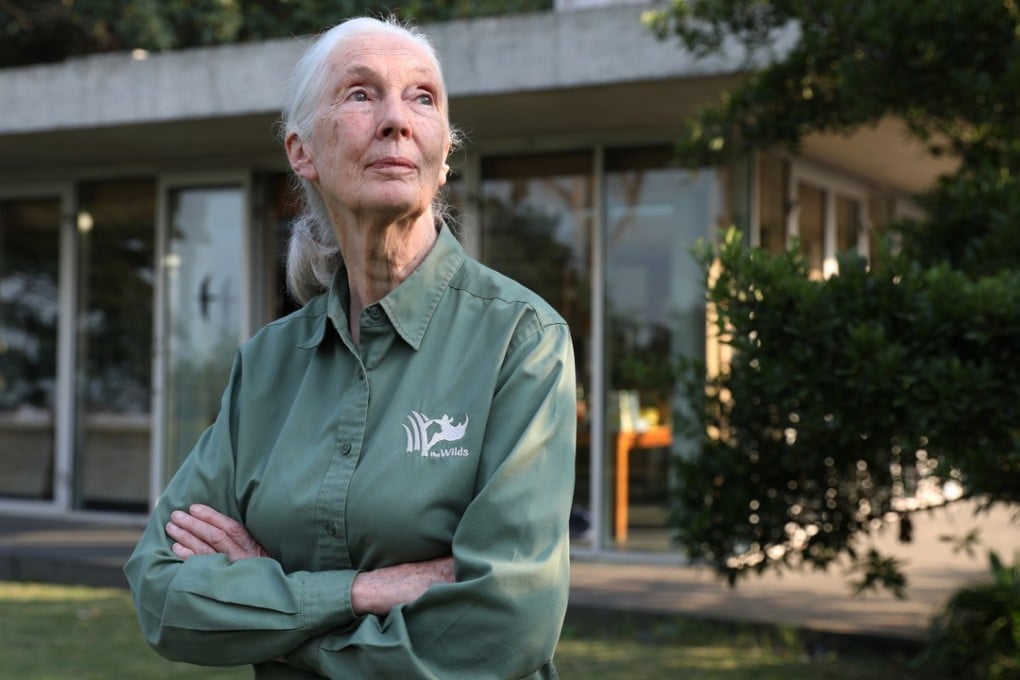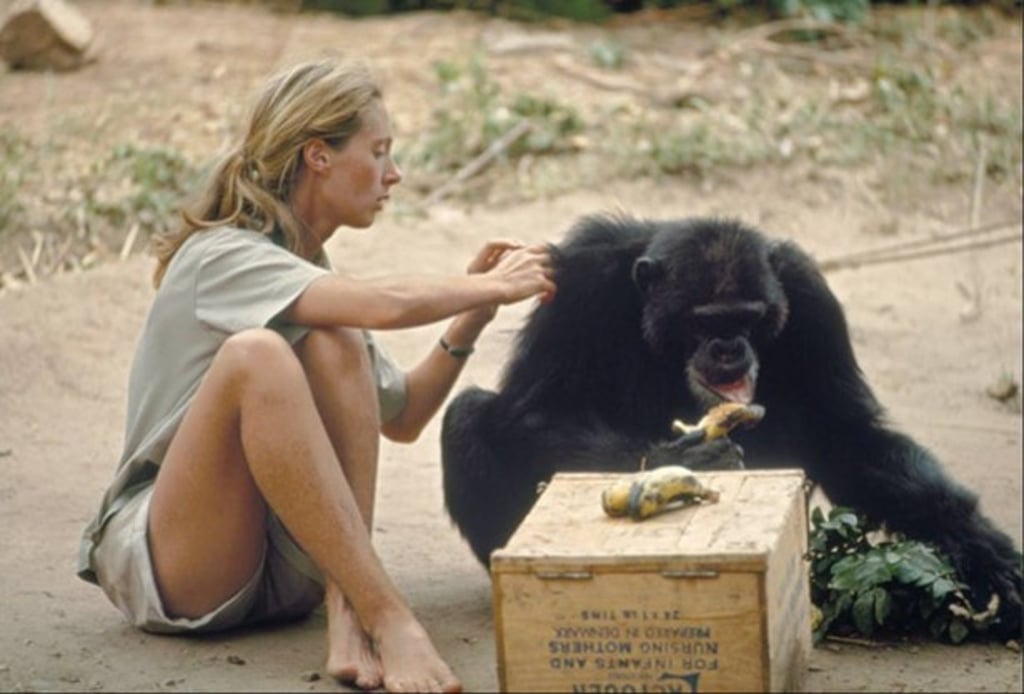Exclusive | Jane Goodall on calling Interpol, the far right and eating your fingernails
- Best known for her work with chimpanzees, renowned animal expert and activist says hope for planet lies in educating young to be stewards
- She champions indomitable human spirit but warns mankind against running itself into extinction

From a very early age, Jane Goodall dreamed of going to Africa, living with wild animals and writing books. She achieved all that, and considerably more.
As a result of her work with chimpanzees in Tanzania, Goodall, now 84, has written more than 20 books and has been the subject of dozens of documentaries. Along the way, she earned a PhD in animal behaviour from Cambridge and has been made a United Nations Messenger of Peace, as well as a Dame Commander of the Order of the British Empire.
Little about Goodall’s background suggested she would become a global superstar of conservation. She grew up in Bournemouth in the south of England and became enamoured of animals after reading Hugh Lofting’s The Story of Doctor Dolittle. Coming from a modest home, she was unable to attend university. But in 1956, after going to secretarial school and working as a typist, she received a letter that would change her life: a friend in Kenya asked if she would visit.

Having always wanted to visit Africa, Goodall dropped everything. Taking a job as a waitress, she saved up for a passage to Kenya, arriving in 1957. There, she met the palaeoanthropologist Louis Leakey, whose work had helped demonstrate that human beings evolved in Africa. Leakey had a curious proposition: he asked Goodall to go to Tanzania to study chimpanzees. By studying primates, Leakey thought, humanity could understand more about its ancestors. Goodall accepted Leakey’s suggestion, and it changed her life.
This month, more than 60 years on, Goodall visited Hong Kong on behalf of her organisation, the Jane Goodall Institute (JGI). Established in 1977 with the aim of protecting chimpanzees and their habitat, JGI’s mission has grown to incorporate a broad range of conservation and education programmes worldwide, with activities in 80 countries and territories, including Hong Kong.
